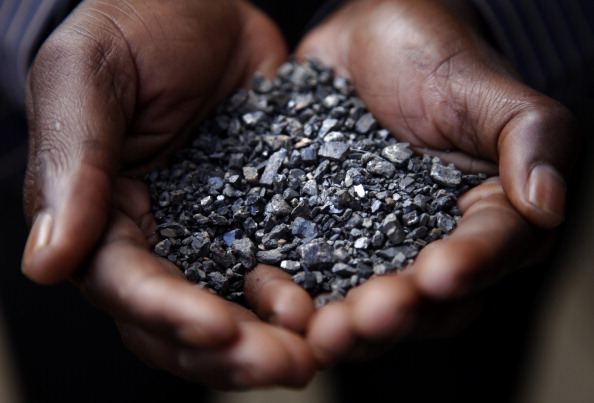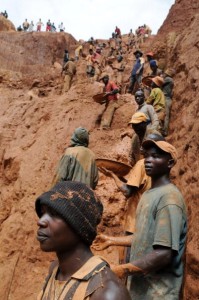What Does Your Cell Phone Have to Do with Armed Conflict?
July 25, 2013 at 8:15 AM

The Democratic Republic of Congo’s long war, which has claimed an estimated three million lives as a result of fighting or disease and malnutrition, was fueled by the regions vast mineral wealth (Photo Credit: Kuni Takahashi/Getty Images).
You know that phone you’re texting on? Do you know how its microchips are made?
Thanks to work by Amnesty International and partner organizations, companies that rely on certain minerals from the Democratic Republic of Congo or neighboring countries now have to investigate and report on whether those minerals fund armed groups.
And it’s about more than just smartphones – “conflict minerals” (tin, tantalum, tungsten, and gold) are used in products like your laptop and even your car. Public disclosure of companies’ sourcing practices can have a real impact on entire industries, pushing companies to take human rights into account as they do business. Can you hear me now?

The Congo is rich in mineral resources such as gold, diamonds, tin, and cobalt (Photo Credit: Lionel Healing/AFP/Getty Images).
Amnesty International USA and Public Citizen (which provided us with pro bono counsel) are celebrating a human rights victory: a federal district court upheld the U.S. Securities and Exchange Commission’s “conflict minerals rule” requiring corporations reporting to the SEC to investigate and publicly disclose whether their sourcing practices finance armed groups in the DRC. The rule was challengedby industry groups – including the Chamber of Commerce – who filed a lawsuit contending that the “conflict minerals rule” was arbitrary and that the public disclosure requirement violated companies’ First Amendment rights.
In yesterday’s decision, the court rejected every single one of the claims advanced by the industry groups and agreed with the SEC and Amnesty International that the industry groups’ arguments lacked merit.
For nearly two decades, the DRC has been in the grip of armed conflict that has caused the suffering of millions of women, men, and children. All parties to the conflict have committed violations of international humanitarian law – including the use of child soldiers, unlawful killings, rape, and other forms of sexual violence.

Children perform the most unskilled but heavy labor in eastern DRC’s artisanal mines. Mining is recognized as one of the Worst Forms of Child Labor in international standards (Photo Credit: Amnesty International/IPIS).
An important source of funding for armed groups operating in and around the DRC is the minerals trade, which supplies tin, tantalum, tungsten, and gold that end up in popular consumer products worldwide ranging from the jewelry you may be wearing right now to the cell phone you can’t spend a single day without.
Section 1502 (known as the conflict minerals provision) of the Dodd-Frank Wall Street Reform and Consumer Protection Act, essentially requires publicly traded companies to disclose publicly whether their products contain minerals from the Democratic Republic of Congo or neighboring countries. If so, these companies must explain the actions taken to trace the origin of the minerals and whether they come from mines or trading routes that help fund armed conflict and the worsening humanitarian situation in the region.
This victory is an important step in bringing much-needed transparency and accountability to companies’ sourcing of conflict minerals and provides critical information to investors and consumers.
http://blog.amnestyusa.org/africa/what-does-your-cell-phone-have-to-do-with-armed-conflict/
No comments:
Post a Comment